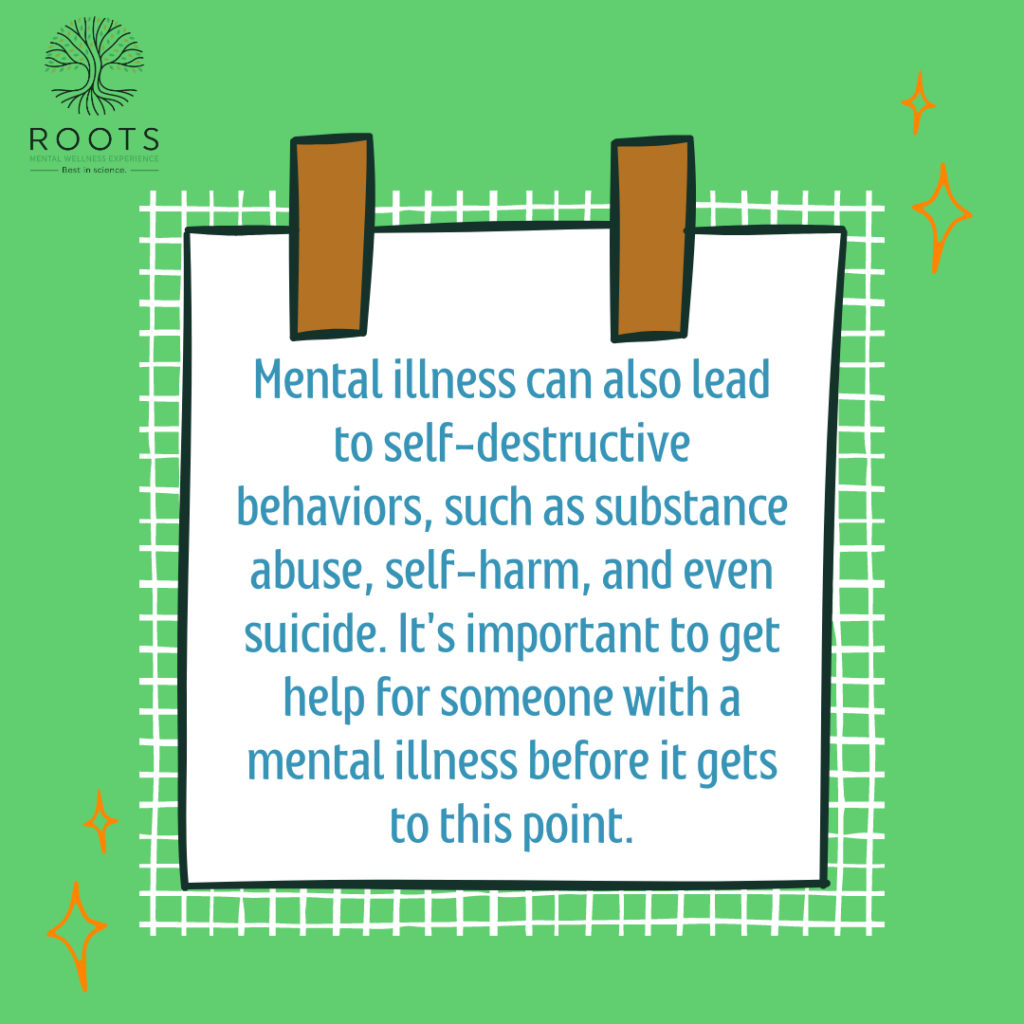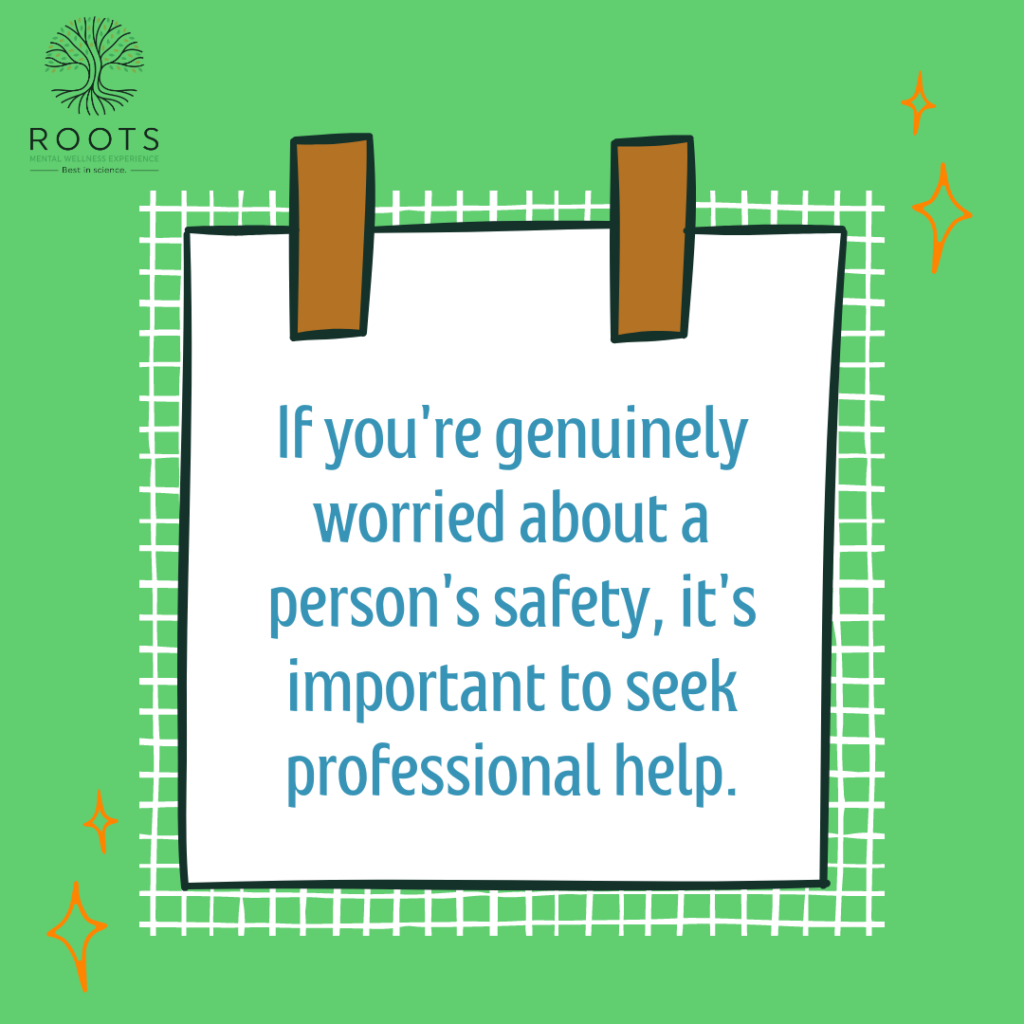It can be challenging to watch someone you care about suffer from mental illness, especially if they don’t want to seek help. Maybe they’re in denial about their condition or fear the stigma surrounding mental health. Whatever the reason, it’s important to respect their wishes while also trying to get them the help they need.
This article will discuss everything you can do to get mental help for someone who doesn’t want it.
Why Mental Help Is Important
Suffering from a mental illness can be incredibly isolating. People with mental illnesses often feel alone in their struggles, and that no one can understand what they’re going through. This isolation can make it harder for them to seek help, as they may feel like nobody will believe them or take them seriously.
Mental illness can also lead to self-destructive behaviors, such as substance abuse, self-harm, and even suicide. It’s important to get help for someone with a mental illness before it gets to this point.

7 Ways to Help Someone Struggling With Mental Health Disorders Who Doesn’t Want It
If you’re worried about someone with a mental illness, you can do a few things to help them.
1. Talk to them about your concerns
The first step is to talk to the person about your concerns. Let them know you’re there for them and want to help. It’s important to be respectful and non-judgmental in this conversation. Many people with a mental illness already feel judged and misunderstood, so try to be understanding and compassionate.
2. Encourage them to see a doctor
One of the best things you can do for someone with a mental illness is to encourage them to see a doctor. A qualified professional can diagnose and treat mental illness, making a huge difference in someone’s life. If the person you’re worried about is resistant to seeing a doctor, offer to go with them or help them make the appointment.
3. Help them find a therapist
If the person you’re worried about is open to seeking professional help, you can help them find a therapist. There are many qualified therapists out there who can help people with mental illness. You can start by searching online or asking your doctor for recommendations.

4. Connect them with resources and support groups
There are many resources and support groups available for people with mental illness. These can be incredibly helpful in providing support and understanding. You can look for these resources online or in your community.
5. Be there for them
One of the most important things you can do is simply be there for the person you’re concerned about. Listen to them, offer them support, and tell them you care. This can make a world of difference for someone struggling with mental illness.
6. Help them take care of themselves
Self-care is incredibly important for people with mental illness. Encourage the person you’re worried about to eat healthy, exercise, get enough sleep, and do things that make them happy. These things can help improve symptoms and make life more manageable.
7. Seek professional help if you’re worried about their safety
If you’re genuinely worried about the person’s safety, it’s important to seek professional help. This can be done by calling a crisis line or taking them to the emergency room. It’s also important to have a plan in case of an emergency.

How to Find the Best Mental Health Professional
Now that you what you can do to help someone with a mental illness, you may wonder how to find the best mental health professional. Here are a few tips:
1. Ask for recommendations
Ask for recommendations if you know anyone who has seen a mental health professional. This is a great way to find someone who is qualified and who you feel comfortable with.
2. Do your research
When looking for a mental health professional, it’s important to do your research. Make sure to read reviews and check credentials. You can also look for information about the therapist’s approach to treatment.
3. Consider your needs
When choosing a mental health professional, it’s important to consider your specific needs. For example, if you have a specific condition, you may want to find a therapist who specializes in that area. You should also consider things like location, schedule, and cost.

4. Ask questions
When you’re meeting with a potential mental health professional, be sure to ask questions. This will help you get a better sense of whether or not they’re a good fit for you. Some questions you may want to ask include:
- What is your approach to treatment?
- How do you work with clients?
- How long have you been in practice?
- Do you have experience treating my specific condition?
5. Trust your gut
Ultimately, it’s important to trust your gut when choosing a mental health professional. If you don’t feel comfortable with someone, it’s probably not a good fit. It’s important to find someone you feel safe with and who you can trust.
If you or someone you know is struggling with mental illness, know that help is available. There are many qualified mental health professionals out there who can help people get the treatment they need. Don’t hesitate to reach out for help if you need it.
Final Thoughts
If you’re worried about someone with a mental illness, you can do a few things to help them. Talk to them about your concerns, encourage them to see a doctor, and help them find a therapist. You can also connect them with resources and support groups. Finally, be there for them and help them take care of themselves. If you’re genuinely worried about their safety, seek professional help. We at Roots Through Recovery want to support you in your efforts to help a loved one with mental illness. We offer a variety of resources and services that can help. Contact us today to learn more about how we can help you and your family.




